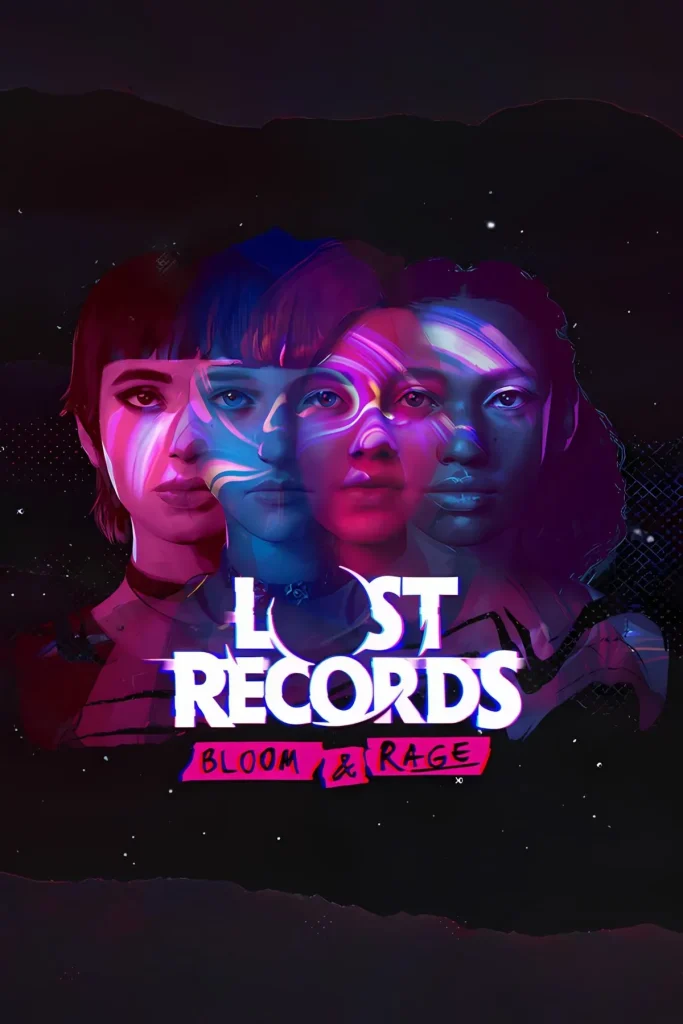In this review of Lost Records Tape Two, we dive into a poignant narrative adventure that explores the complexities of teenage drama and the emotional storytelling that accompanies it. Set against the backdrop of rural Michigan in the summer of 1995, the game follows the journey of four girls whose bonds are tested by love, grief, and self-discovery. This installment captures the essence of nostalgia as the characters grapple with their memories and return to their long-abandoned hometown after decades apart. Lost Records has significantly evolved from its predecessor by delving deeper into adult themes, while still maintaining the engaging gameplay mechanics that fans of video game reviews and narrative adventures have come to appreciate. As they confront their past, players are invited to reflect on their own experiences of friendship and loss, making this title a must-play for lovers of emotional storytelling and rich character arcs.
In the sequel known as Lost Records Tape Two, players are immersed in an eventful narrative where the interplay of memory and emotion reigns supreme. This alternate installment revisits the adolescent experiences of four young women, presenting a rich tapestry of their lives as they navigate the challenges of growing up and facing reality. The narrative unfolds with an emphasis on emotional depth, reflecting on the delicate struggles of love and loss in teenage years. The game’s ability to evoke strong feelings is reminiscent of other compelling storytelling experiences, allowing players to forge a deep connection with the characters. As we engage with this story, we see how the passage of time reshapes our understanding of friendships and the lasting impact of formative experiences.
Exploring the Emotional Depth of Lost Records: Tape Two
Lost Records: Tape Two captures the intricacies of teenage friendships and the emotional landscapes that shape them. At its core, the game weaves love, grief, and self-reflection into its narrative, drawing players into the poignant moments of the characters’ lives. The story’s structure, grounded in flashbacks, allows players to experience a narrative adventure that mirrors the complexities of memory. As Swann, Autumn, and Nora reunite in their hometown, the layers of their shared past unfold, revealing the bittersweet nature of their experiences together.
The depth of emotional storytelling in Lost Records is further accentuated by the juxtaposition of the characters’ youthful optimism with their adult realities. Each interaction and memory exposed during the reunion allows players to witness how trauma and growth shape these women’s lives. The game effectively illustrates how teenage drama evolves, offering insight into the struggles that resonate well beyond high school. Ultimately, players are invited to reflect on their own past relationships and the memories that they carry, blending personal nostalgia with the characters’ journeys.
Narrative Adventures in Gaming: A New Frontier
The genre of narrative adventures has gained immense popularity, with games like Lost Records: Tape Two leading the way in emotional storytelling. This game showcases how narrative-driven gameplay can deliver powerful messages about friendship and resilience, set against a backdrop of supernatural elements intertwined with personal struggles. As players navigate through the characters’ past through engaging dialogue trees, they are offered agency in shaping the narrative, demonstrating the interactive potential of video games as a storytelling medium.
Furthermore, Lost Records exemplifies how video game reviews have started to reflect the shift towards more substantive narratives instead of purely action-driven play. In today’s game landscape, players increasingly seek experiences that challenge their emotions and provoke thoughtful interactions. The gripping tale of teenage girls facing extraordinary circumstances resonates not only within the confines of the game but also speaks to broader themes of love, loss, and coming-of-age that are universally relatable.
The Significance of Teenage Drama in Lost Records
Teenage drama serves as a crucial theme in Lost Records: Tape Two, inviting players to revisit the raw emotions of adolescence. The game delves into the complexities of teenage relationships, highlighting the sometimes messy interplay between friendship and personal growth. As Swann and her friends grapple with their emotional struggles, the narrative reflects on the often underestimated depth of teenage experiences, revealing that even in youth, the capacity for love and pain is profound.
In this context, Lost Records transcends traditional gaming narratives by giving players a sincere glimpse into the characters’ internal conflicts. The depiction of grief, particularly surrounding Kat’s cancer diagnosis, evokes an empathetic response, allowing players to engage with the realities many teenagers face. This exploration of teenage drama not only enriches character development but also contributes to the overall theme of the importance of preserving relationships during pivotal life moments.
Gameplay Mechanics: A Shift in Focus
While the previous installment of Lost Records featured gameplay centered around exploration and interactive mechanics, Tape Two adopts a more reflective approach. Although traditional gaming elements like stealth and puzzle-solving are diminished, this shift does not detract from the overall experience; rather, it enriches the storytelling. Players are encouraged to engage with the narrative at a deeper level, focusing on dialogue and character interactions rather than mere gameplay challenges.
This change allows for a stronger emotional connection, as poignant moments unfold organically within the narrative. The anticipation of character reunions and the unfolding of their shared histories take precedence, showcasing an evolution of gameplay that prioritizes story over mechanics. This approach aligns with the emotional themes in Lost Records, reinforcing that, sometimes, the most impactful gaming experiences come from the stories told rather than the actions taken.
Revisiting Childhood Memories Through Flashbacks
Flashbacks play a significant role in Lost Records: Tape Two, as they allow players to experience the characters’ childhood memories and the pivotal moments that shaped their present selves. Through this mechanic, players can witness the transitions in the characters’ lives—from their carefree days in the woods to the harsher realities of adulthood. This structure not only brings nostalgia into the gameplay but also serves as a powerful reminder of how our past experiences inform our current identities.
These narrative devices encourage players to reflect on their own memories and the interpretations they carry with them. Just as the characters evolve through their reflections, players too navigate their understanding of youthful experiences. The use of flashbacks in the game ensures that the emotional core remains intact, fostering connections that resonate long after gameplay has ended.
The Supernatural Elements: Symbolism and Interpretation
At the heart of Lost Records is the enigmatic hole in the woods, referred to as ‘the abyss.’ This supernatural element serves as a symbol throughout the narrative, reflecting the characters’ struggles with unresolved emotions and the unknown aspects of life. Players are prompted to consider what the abyss might represent—whether it is a gateway to understanding, a metaphor for loss, or a literal manifestation of their fears and aspirations.
The game invites players to engage with these symbolic elements, allowing for varied interpretations that can enhance the gaming experience. By weaving together teenage drama with supernatural intrigue, Lost Records creates a complex tapestry of storytelling that challenges players to confront their perspectives on love, grief, and existential uncertainty. The ambiguity surrounding these themes often reflects real-life complexities, calling players to think critically about the narratives they encounter.
Critically Acclaimed: Reviews of Lost Records
Reception for Lost Records: Tape Two has been largely favorable, with video game reviews lauding its emotional depth and compelling narrative structure. Critics have noted how the game effectively marries innovative storytelling with engaging character arcs, making it a standout in the genre of narrative adventures. As the characters wrestle with their pasts, reviewers have highlighted the poignant presentations of teenage emotions that resonate strongly with players of all ages.
Game reviewers often emphasize how the game transcends typical teenage drama by examining the realities of adult life through the lens of childhood memories. The praise for its evocative writing and emotional storytelling reinforces the game’s place as a vital contribution to the narrative adventure genre. Players have left reviews reflecting their profound connections to the characters’ journeys, affirming that Lost Records is not just a game—it’s an experience that lingers long after the screen fades.
Symbolic Themes: Friendship and Imagination
Lost Records encapsulates the themes of friendship and imagination, illustrating how these elements shape individual lives. The characters’ bonds portray the importance of companionship, especially during formative years filled with uncertainty and change. Through their shared experiences, players can witness the profound impact these relationships can have, shaping both their identities and their perspectives on life.
The game invites players to explore how imagination can also play a vital role in navigating life’s challenges. The supernatural aspects woven into the narrative imply that friendships can create a realm where ordinary struggles are elevated to something fantastical. This compelling blend of emotional storytelling and imaginative elements creates an enriching experience that speaks to the universal themes of love, adventure, and the desire to make sense of one’s life.
Concluding Thoughts: The Legacy of Lost Records
In conclusion, Lost Records: Tape Two offers a heartfelt exploration of love, grief, and the complexities of growing up. The game’s focus on emotions and memories enhances the narrative, creating a uniquely immersive experience that allows players to reflect on their own journeys. Whether through the supernatural motifs or the profound interactions between characters, the game’s layered storytelling resonates on multiple levels, encouraging introspection and connection.
As players complete their journey through Lost Records, they are left with lingering questions and the realization that life’s truths are often steeped in ambiguity. The balance of nostalgia and realism fosters a deep appreciation for the intricacies of relationships and the weight of memories. Ultimately, Lost Records stands as a remarkable testament to how video games can evoke emotional resonance and craft meaningful stories that deeply transform players.
Frequently Asked Questions
What are the main themes explored in the Lost Records Tape Two review?
The Lost Records Tape Two review highlights themes such as love, grief, self-recrimination, and the malleability of memories. It portrays how the characters reflect on their teenage experiences and emotions as they reunite years later.
How does Lost Records Tape Two differ from its predecessor in terms of gameplay?
Unlike the first installment, Lost Records Tape Two offers less gameplay interactivity and focuses more on narrative storytelling. Players engage with dialogue trees and emotional scenes rather than extensive video camera mechanics.
What emotional elements are central to the narrative in Lost Records Tape Two?
The emotional storytelling in Lost Records Tape Two centers on the characters’ struggles with Kat’s terminal cancer diagnosis, their complex feelings for each other, and the bittersweet nature of teenage friendships, making poignant moments resonate strongly.
Does the review for Lost Records Tape Two suggest it’s suitable for fans of teen drama video games?
Yes, the Lost Records Tape Two review suggests that fans of teenage drama and emotional storytelling in video games will find the narrative compelling, as it explores deep themes of friendship, love, and loss.
How is the storytelling structured in Lost Records Tape Two according to the review?
The storytelling in Lost Records Tape Two is primarily structured through flashbacks as the characters navigate their past and present emotions, allowing players to experience their stories both as teenagers and adults.
What is the significance of the supernatural element in Lost Records Tape Two?
In the Lost Records Tape Two review, the supernatural element, particularly the mysterious ‘abyss,’ is interpreted symbolically. It reflects the characters’ journey and the ambiguous nature of their youthful perceptions.
What notable moments are mentioned in the Lost Records Tape Two review?
The review mentions several notable moments, including intimate conversations between Swann and Nora, and Swann’s emotional act of helping Kat prepare for chemotherapy, which captures deep feelings of love and loss.
What can players expect from the conclusion of Lost Records Tape Two?
Players can expect an ambiguous conclusion that resonates with the themes of the narrative. It reflects the complexity of growing up and the uncertain outcomes of life, much like the experiences of the characters themselves.
| Key Points | Details |
|---|---|
| Themes | The malleability of memories, friendship, love, grief, and self-recrimination. |
| Setting | Rural Michigan during the summer of 1995, transitioning to a reunion decades later. |
| Main Characters | Swann, Autumn, Nora, and Kat, each with transformed lives and perspectives. |
| Gameplay Mechanics | Primarily narrative-focused with less gameplay challenge, emphasizing story elements. |
| Narrative Style | Utilizes flashbacks to explore past and present experiences of the characters. |
| Emotional Impact | Deeply resonant writing about loss, love, and friendship, capturing teenage complexity. |
| Conclusion of Tape Two | Ends ambiguously, reflecting on themes of nostalgia and the essence of youth. |
Summary
The Lost Records Tape Two review highlights a nuanced exploration of love, grief, and self-recrimination as the characters reconnect after years apart. This installment dives deeply into the complexities of memory and friendship, further enriched by evocative writing and emotionally charged scenes. With its focus on the transformation of the characters and their relationships, the game delivers poignant moments that resonate long after the experience. Whether it’s through shared memories or the bittersweet nature of their reunion, the impact of their youthful innocence juxtaposed with adult realities creates a hauntingly beautiful narrative that stays with players, making it a profound addition to the series.



